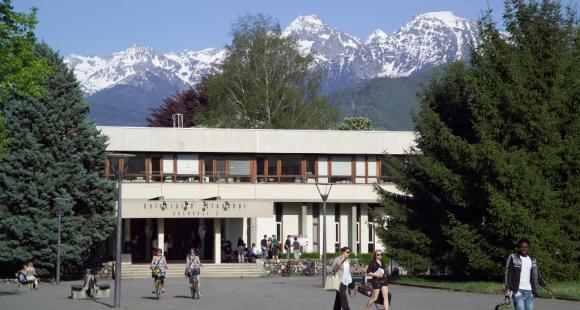Emma Alquist (Sydney): My courses in Australia are pretty different from the ones I have taken at West Virginia University. At my university in Sydney, I am taking vegetation ecology, biochemistry and health care ethics.

I have found these courses to be much easier than some of the more advanced biology courses offered at WVU. There are never any homework assignments, as all of the grading is based on just three different assessments for each course (usually two tests and a report).
I was very nervous when my first test approached because I couldn’t ask anyone about them. No one was familiar with the difficulty of tests from WVU, so I had no frame of reference to go by. When I finally took my tests, I was blown away by how easy the material seemed. I think part of this was simply because I had been prepared well by my other courses at WVU, but overall, the material feels easier.
University in Australia has seemed much more relaxed. I do not have to spend countless hours in the library like I must do in Morgantown in order to succeed. Most of my learning takes place in the classroom, but I have to dedicate several hours a week to doing things like looking over my lectures or finishing up a paper.
Grading here is also a bit strange. Most people are simply aiming for a credit, which is given to anyone with a grade above 50 percent. This makes studying less stressful for me because my courses here will not affect my GPA, as they only transfer back to WVU as a pass/fail.
I am also taking two online classes through WVU to make sure I fulfill enough credit hours for the semester. I have enjoyed my courses, but I think if I studied more than six months here, I would become a lazy student.
Emily McCoy (Milan): The majority of my time is spent in the research lab, which is similar to the Human Performance Lab at WVU. Here is where I work to complete my internship and write my thesis paper.
I am only enrolled in one class here at the University of Milan: a basic-level Italian course. My class is very small and contains only around 20 students.

I feel really lucky to be from the United States because the common language in the classroom is English. I am the only American student surrounded by students from all over the world, including Iran and Spain. I can’t imagine what it would be like to be taught a third language through a language that isn’t your mother tongue.
This particular class seems to be a lot like a typical American college class. It is taught by one professor who calls on students to answer questions, uses video and audio clips and hands out worksheets. We don’t have quizzes or tests—just an exam at the end of the course. We also were required to buy a textbook and, to my surprise, it only cost €20. (Wouldn’t that be nice in the American college system?)
Askar Salikhov (Grenoble): Overall, there is a lot less hand-holding in courses offered at my university, Science Po Grenoble. Here, there are two types of courses taught: conférences de méthode and cours fondamentaux. Science Po also offers specialized courses and topics, but they are like the latter type.

Conférences de méthode are classes taught to a small group of students. They involve a lot of discussion, debate, opportunities to give exposes on material. Cours fondementaux, on the other hand, bring fundamental material to a hundred or more students at a time. Those courses are nothing but lectures that can go one for two or more hours. However, both types of courses function without a great variety of grades.
For conférences de méthode, attendance, participation and grade on the final exam count for your overall grade. For cours fondementaux, only the final exam earns you a grade. I like the straightforwardness of this system, but I’m fine with the U.S. system.
